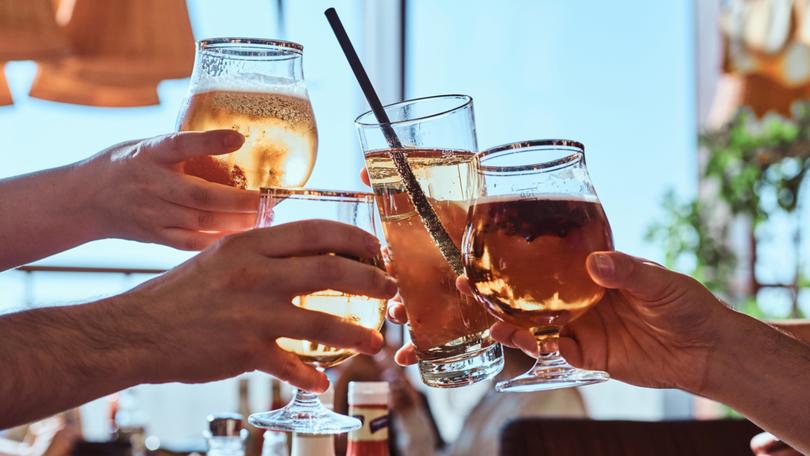Andrew Miller: Injury and disease from alcoholism puts illicit drugs in the shade
Alcohol is a completely legal, fully franked, multibillion-dollar public health train wreck, so why do we still fall for the allure of alcohol?

Our sins become less audacious as we age — the big ones become too tiring.
One guilty pleasure that has survived is popping into a restaurant on my own when travelling. Anywhere will do, but even many on-trend establishments can find a table for one.
They offer me a seat at the bar usually — it probably looks less pathetic than facing an empty seat.
Sign up to The Nightly's newsletters.
Get the first look at the digital newspaper, curated daily stories and breaking headlines delivered to your inbox.
By continuing you agree to our Terms and Privacy Policy.So it was when I lined up at a Sydney brunch spot recently. The smashed avocado and bloody mary joint was buzzing, but the bushy-eyebrowed manager agreed to tolerate me at the bar, with a limit of 45 minutes.
I carried no laptop bag, but he wasn’t taking any chances.
The apothecarian shelves behind the wooden bar framed a wide window, allowing me a voyeur’s aspect of a bustling arcade beyond.
The passing parade of serious shoppers was diffracted through dozens of beautifully crafted spirit and wine bottles.
Greens, reds, blues, yellows and dozens of light brown-oranges were all backlit, forming a giant, dynamic Mondrian prism.
Interrupting his theatrical tending, the barman nodded his head towards this choir of glass, and asked “where would you like to go?”
He was, of course, very used to people want-needing a drink at noon. Where indeed?
Common alcohol — aka ethanol — is a poor general anaesthetic, technically speaking. It has a long excitatory phase at lower doses; an unpredictable course of sedation and analgesia at higher doses; is slow to metabolise, and is wont to induce a rebellious stomach, as readers may have literally heard.
Although historical cases of whisky-assisted, bloody surgery are reported, ethanol was not popular for operations before its cousin, ether, was introduced for inhalational anaesthesia in 1846. Ether’s molecular structure is simply two ethanol molecules holding hands.
Anyone who has worked in a liquor store before lunch knows the tremulous, blue fingers of the desperately defeated hold no joy.
The injury and disease resulting from overuse of alcohol still puts all our illicit drugs in the shade. It is a completely legal, fully franked, multibillion-dollar public health train wreck.
The tells of alcoholism are familiar to bartenders, doctors, artists and lovers alike, and experience destroys any illusion of romance.
Like many people, I developed a severe histamine reaction to all alcoholic drinks after one COVID-19 infection. My customary tasting of pinot noir on the weekend is currently off the table.
OK, so it was two or possibly three glasses, if you must be nosy. Sometimes not much left in a bottle — especially on a rough Tuesday.
Waiting for weekends was more of a guideline than a strict rule.
The National Health and Medical Research Council says 10 standard drinks a week — about a litre of pinot — and no more than four standard drinks a day, for healthy people, reduces the risk of dying from alcohol-related disease below 1/100.
The safest amount of alcohol consumption, from a scientific perspective, is nil. The only reason the NHMRC set guidelines that are above zero is because people will switch off altogether if told to abstain.
Moderation, though, is a variable beast. Many people who are not alcoholics drift towards drinking in the grey zone, particularly when busy.
They are not watching the clock until the next pour, but the drink is “taking more than it gives” as Sarah Rusbatch, author of Beyond Booze, puts it.
Without the social pinot, I now sleep properly, my reflux is gone and the head is clearer.
The main problem with freedom is that humans are ardent practitioners of akrasia — knowingly acting against our own better interests. Reducing consumption may involve addressing problematic relationships, and the stresses that make us welcome wine o’clock a bit too keenly. It’s all much harder than twisting a screwcap.
Where would you like to go?
The occasional poison is fine, but beware.
The pretty prism of the bottles always whispers “one more won’t hurt”.
Originally published as Andrew Miller: Injury and disease from alcoholism puts illicit drugs in the shade
